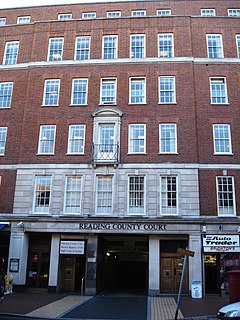Significance
After the decision, the presiding judge (Diplock J) expected that the law would be changed. As he put it, "If it were permissible to speculate at large as to the intentions of Parliament, I should be tempted to guess that Parliament simply overlooked the case of a lease for a fixed term of between one and two years." He felt that Parliament could not possibly have intended to confer security of tenure on both lettings of less than a year and more than two years, but to leave out lettings for terms in between. [3] However, Parliament expressly excluded such agreements from security of tenure in the Agriculture (Miscellaneous Provisions) Act 1976, the Agricultural Holdings Act 1984 and the Agricultural Holdings Act 1986. After 1959, agricultural tenancies for terms of this period became known as Gladstone v Bower agreements, under which the landlord need not serve a Notice to Quit to end the tenancy, but if the tenant were allowed to hold over, he might obtain statutory security. [4]
William John Kenneth Diplock, Baron Diplock, PC was a British judge and Law Lord.
The Agricultural Tenancies Act 1995 has superseded the previous Acts and new Gladstone v Bower agreements can no longer be created.

The Agricultural Holdings Act 1995 is an Act of the Parliament of the United Kingdom which applies to England and Wales. It is in force. The Act reformed and substantially deregulated the law relating to agricultural tenancies, and has had the dual effects of increasing the amount of land available to rent in the agricultural sector, and increasing the average rent per acre charged.
A tenant farmer is one who resides on land owned by a landlord. Tenant farming is an agricultural production system in which landowners contribute their land and often a measure of operating capital and management, while tenant farmers contribute their labor along with at times varying amounts of capital and management. Depending on the contract, tenants can make payments to the owner either of a fixed portion of the product, in cash or in a combination. The rights the tenant has over the land, the form, and measure of the payment varies across systems. In some systems, the tenant could be evicted at whim ; in others, the landowner and tenant sign a contract for a fixed number of years. In most developed countries today, at least some restrictions are placed on the rights of landlords to evict tenants under normal circumstances.

A landlord is the owner of a house, apartment, condominium, land or real estate which is rented or leased to an individual or business, who is called a tenant. When a juristic person is in this position, the term landlord is used. Other terms include lessor and owner. The term landlady may be used for women owners, and lessor may be used regardless of gender. The manager of a UK pub, strictly speaking a licensed victualler, is referred to as the landlord.

LexisNexis Group is a corporation providing computer-assisted legal research (CALR) as well as business research and risk management services.
During the 1970s, LexisNexis pioneered the electronic accessibility of legal and journalistic documents. As of 2006, the company has the world's largest electronic database for legal and public-records related information.

A lease is a contractual arrangement calling for the lessee (user) to pay the lessor (owner) for use of an asset. Property, buildings and vehicles are common assets that are leased. Industrial or business equipment is also leased.
A leasehold estate is an ownership of a temporary right to hold land or property in which a lessee or a tenant holds rights of real property by some form of title from a lessor or landlord. Although a tenant does hold rights to real property, a leasehold estate is typically considered personal property.
The Land Acts were a series of measures to deal with the question of peasant proprietorship of land in Ireland in the nineteenth and twentieth centuries. Five such acts were introduced by the government of the United Kingdom between 1870 and 1909. Further acts were introduced by the government of the Irish Free State after 1922.
Tenant-right is a term in the common law system expressing the right to compensation which a tenant has, either by custom or by law, against his landlord for improvements at the termination of his tenancy.

The assured shorthold tenancy is the default legal category of residential tenancy in England and Wales. It is a form of assured tenancy with limited security of tenure, which was introduced by the Housing Act 1988 and saw an important default provision and a widening of its definition made by the Housing Act 1996. Since 28 February 1997 in respect of accommodation to new tenants who are new to their landlords, the assured shorthold tenancy has become the most common form of arrangement that involves a private residential landlord. The equivalent in Scotland is short assured tenancy.
The Landlord and Tenant Act 1954 is an act of the United Kingdom Parliament extending to England and Wales. Part II of the act is a statutory code governing business tenancies. Part I of the act, which deals with the protection of residential tenancies, is now largely superseded.
John V. Orth is an American legal scholar and author. He is the William Rand Kenan Jr. Professor of Law at the University of North Carolina-Chapel Hill.

An assured tenancy is a legal category of residential tenancy to an individual in English land law. Statute affords a tenant under an assured tenancy a degree of security of tenure. A tenant under an assured tenancy may not be evicted without a reasonable ground in the Housing Act 1988 and, where periodic, changes in rent are potentially subject to a challenge before a rent assessment committee.

Street v Mountford [1985] UKHL 4 is an English land law case from the House of Lords. It set out principles to determine whether someone who occupied a property had a tenancy, or only a licence. This mattered for the purpose of statutory tenant rights to a reasonable rent, and had a wider significance as a lease had "proprietary" status and would bind third parties.
A milk quota was one of the measures used by governments in the European Union to intervene in agriculture. Their purpose was to bring rising milk production under control. Milk quotas were attached to land holdings, and they represented a cap on the amount of milk that a farmer could sell every year without paying a levy. Milk quotas were assets; they could be bought and sold, or acquired or lost by other means, and there was a market for them.
The history of rent control in England and Wales is a part of English land law concerning the development of rent regulation in England and Wales. Controlling the prices that landlords could make their tenants pay formed the main element of rent regulation, and was in place from 1915 until its abolition by the Housing Act 1988.
In England and Wales, a section 21 notice, also known as a section 21 notice of possession or a section 21 eviction, is the notice which a landlord must give to their tenant to begin the process to take possession of a property let on an assured shorthold tenancy without providing a reason for wishing to take possession. The expiry of a section 21 notice does not bring a tenancy to its end. The tenancy would only be ended by a landlord obtaining an order for possession from a court, and then having that order executed by a County Court bailiff or High Court enforcement officer. Such an order for possession may not be made to take effect earlier than six months from the beginning of the first tenancy unless the tenancy is a demoted assured shorthold tenancy. If the court is satisfied that a landlord is entitled to possession, it must make an order for possession, on a date no later than 14 days after the making of the order unless exceptional hardship would be caused to the tenant in which case possession may be postponed to a date no later than six weeks after the making of the order. The court has no power to grant any adjournment or stay of execution from enforcement unless the tenant has a disability discrimination, public law or human rights defence, or the case is pending an appeal.
A short assured tenancy is a type of tenancy in Scotland that was introduced by the Housing (Scotland) Act 1988. A short assured tenancy gives landlords some protection and freedom of action when letting their properties. Short assured tenancies have become the norm within the residential letting industry in Scotland. The equivalent legislation in England and Wales is assured shorthold tenancy.
The Residential Tenancies Act 2006 is the law in the province of Ontario, Canada, that governs landlord and tenant relations in residential rental accommodations. The Act received royal assent on June 22, 2006, and was proclaimed into law on January 31, 2007. The Act repealed and replaced the Tenant Protection Act, 1997. Ontario's Landlord and Tenant Board is governed by the act.
The Housing Act 1988 is an Act of Parliament in the United Kingdom. It governs the law between landlords and tenants. The Act introduced the concepts of assured tenancy and assured shorthold tenancy.
It also facilitated the transfer of council housing to not-for-profit housing associations.

The Evesham Custom is a distinctive form of customary leasehold tenure used in the market gardens of Evesham, Worcestershire. It is the most well-known of a number of former local practises, such as the Ulster Custom and North Lincolnshire Custom. The underlying principle of such customs was that the tenant could be granted compensation for any improvements they made to the land they leased, since the common law did not provide any such protection.







